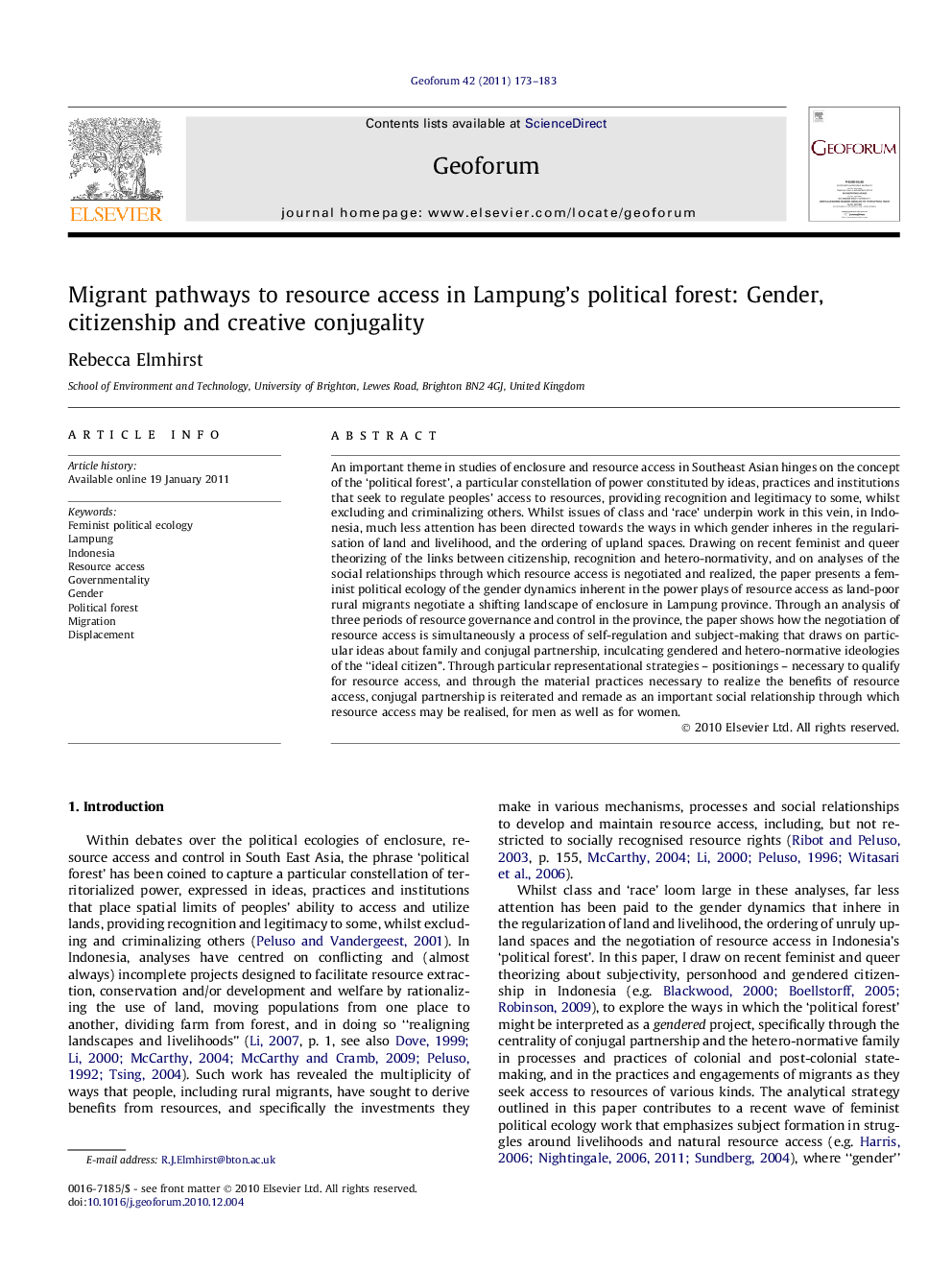| Article ID | Journal | Published Year | Pages | File Type |
|---|---|---|---|---|
| 5074334 | Geoforum | 2011 | 11 Pages |
An important theme in studies of enclosure and resource access in Southeast Asian hinges on the concept of the 'political forest', a particular constellation of power constituted by ideas, practices and institutions that seek to regulate peoples' access to resources, providing recognition and legitimacy to some, whilst excluding and criminalizing others. Whilst issues of class and 'race' underpin work in this vein, in Indonesia, much less attention has been directed towards the ways in which gender inheres in the regularisation of land and livelihood, and the ordering of upland spaces. Drawing on recent feminist and queer theorizing of the links between citizenship, recognition and hetero-normativity, and on analyses of the social relationships through which resource access is negotiated and realized, the paper presents a feminist political ecology of the gender dynamics inherent in the power plays of resource access as land-poor rural migrants negotiate a shifting landscape of enclosure in Lampung province. Through an analysis of three periods of resource governance and control in the province, the paper shows how the negotiation of resource access is simultaneously a process of self-regulation and subject-making that draws on particular ideas about family and conjugal partnership, inculcating gendered and hetero-normative ideologies of the “ideal citizen”. Through particular representational strategies - positionings - necessary to qualify for resource access, and through the material practices necessary to realize the benefits of resource access, conjugal partnership is reiterated and remade as an important social relationship through which resource access may be realised, for men as well as for women.
Research highlights⺠The paper provides an analysis of resource access pathways for poor farmers in Lampung, Indonesia. ⺠Marriage is a key social relationship through which resource access is possible, for men and women. ⺠Negotiation of resource access is revealed as a process of gendered subject-making.
